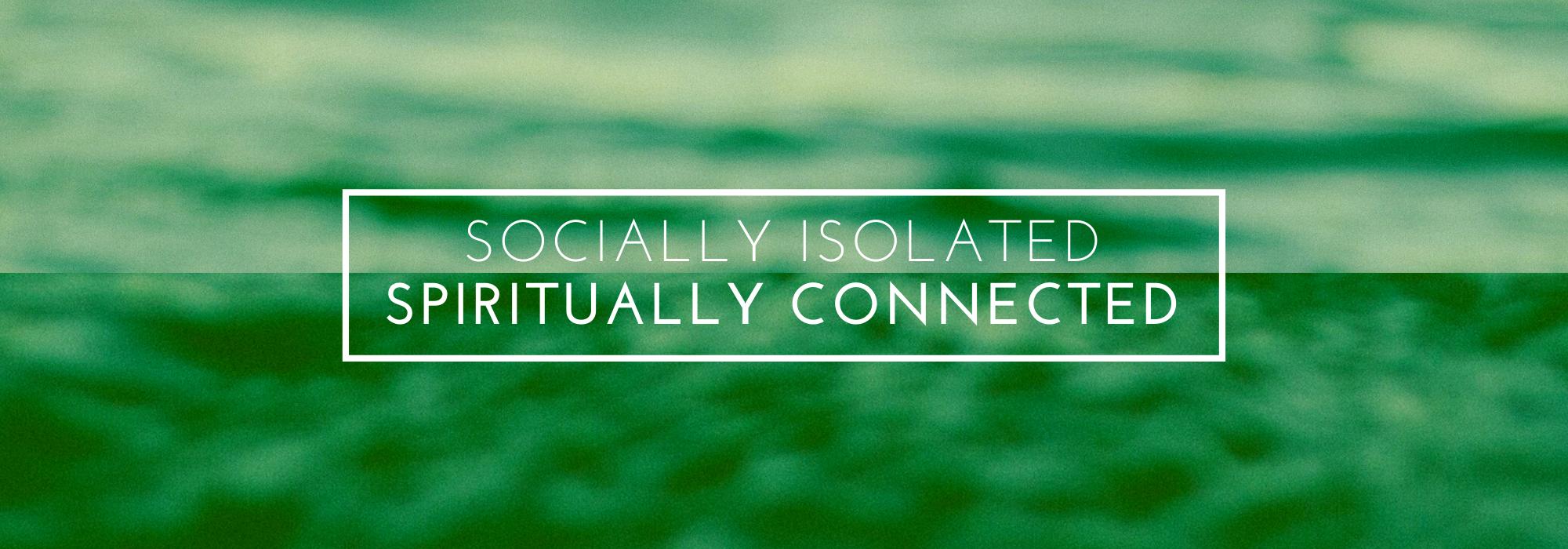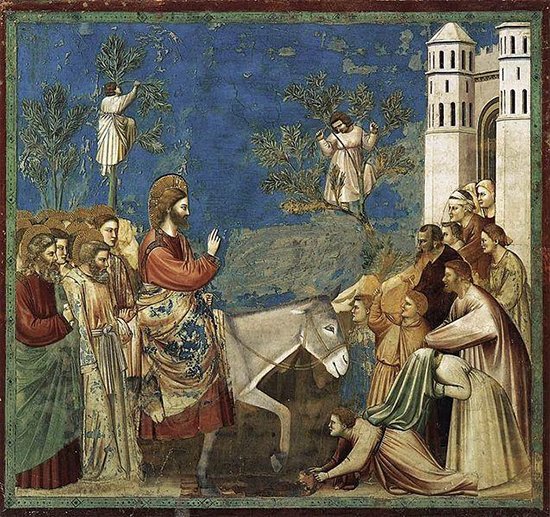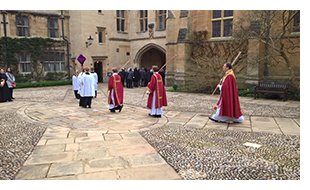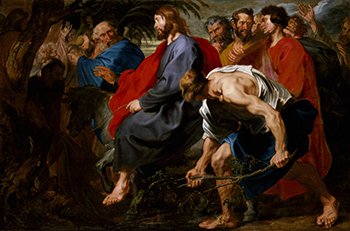
Holy Week: Palm Sunday
by The Revd Canon Dr Simon Jones, Chaplain and Fellow of Merton College, Oxford
- Download 'Reflection on Palm Sunday' (PDF format)

Gabriel Jackson, The Passion of Our Lord Jesus Christ
(listen on Apple Music or Spotify)
libretto compiled by Simon Jones
Vexilla regis prodeunt,
fulget crucis mysterium,
quo carne carnis conditor
suspensus est patibulo.
Tell ye the daughter of Sion, Behold, thy King cometh unto thee, meek, and sitting upon an ass, and a colt the foal of an ass. (Matthew 21.5)
Hosanna to the son of David: Blessed is he that cometh in the name of the Lord; Hosanna in the highest.
And when Jesus was come into Jerusalem, all the city was moved, saying, Who is this? And the multitude said, This is Jesus the prophet of Nazareth of Galilee. (Matthew 21.9b-11)
Vexilla regis prodeunt,
fulget crucis mysterium,
quo carne carnis conditor
suspensus est patibulo.
Venantius Fortunatus (c.530–c.600/609)
(Hymn at Vespers, Passiontide)*
*English translation:
The banners of the king advance,
the mystery of the cross shines forth,
the creator of all flesh, flesh himself,
is hung from the gallows.
Crowds play an important part in the accounts of the last seven days of Jesus’ earthly life in all four Gospels, as well as in the Church’s annual celebration of this Holy Week, which begins today.
On Palm Sunday, a very large crowd, or ‘multitude’ (to use the language of the King James Version), spreads their cloaks as well as branches on the road as Jesus passes by on the back of a donkey. After his entrance into the city, the same multitude acclaims Jesus as ‘the prophet of Nazareth of Galilee’. But the Holy Week crowd also speaks with another voice, the voice that cries ‘Let him be crucified’. This double-speak is brought into sharp focus in the dramatic liturgy of Palm Sunday.
In Holy Week we are the crowd, we are the ones who sing ‘Hosanna to the son of David’ as we wave our palms. Minutes later, as the Passion Gospel is proclaimed, we are the ones who cry out ‘Let him be crucified’ and get what we ask for as, in the words of the ancient hymn, ‘the creator of all flesh, flesh himself, is hung from the gallows’.
The fact that each of us is able to speak with a double-tongue, even to the ‘creator of all flesh’, the one who knows our inmost motives, anxieties, and desires, has the potential to wound our self-image and self-worth. It applies to all of us. There are no exceptions. No saint, however holy, has ever been spared the feelings of embarrassment and self-loathing which come from being part of that crowd which shouts about a bloodied, bruised and tortured man, ‘Let him be crucified’. Our symbolic participation in the worship of Palm Sunday confronts us with this, and confirms our place within the crowd, but it does so not from the starting point of despair, but of hope.
Hope because, first and foremost, as the hymn reminds us, the one who is led to Calvary carries us with him. Because of the miracle of the incarnation the crucified victim shares our flesh. There is therefore no part of us with which he does not identify, no aspect of our lives, even the double-talk or those things of which we’re most ashamed, which falls outside his loving embrace.
Hope, too, because we belong to an even greater multitude than the crowd which, one day, shouted ‘Hosanna’ and, five days later, cried even more loudly, ‘Let him be crucified’. This multitude of which we are part is the community of faith, the Church, at all times and in all places. In the almost two weeks since the lock-down began, I’ve found it helpful to remind myself of this. Our cathedrals, churches and chapels are closed. Even if their doors were unlocked, we would not find the church there, because the church is not a building but the body of Christ.
 At the present time we are dispersed: a number of us are feeling isolated, anxious and alone; some of us are sick, at home or in hospital; others are bearing the intolerable pain of grief without having been able to say farewell to a loved one; still others have died. Our membership of this community which spans the globe and the centuries does not anaesthetise us from these feelings, but it does provide a framework of fellowship and solidarity, a place of belonging, and safe space in which we can explore our true identity as those with whom Christ shares our flesh and blood.
At the present time we are dispersed: a number of us are feeling isolated, anxious and alone; some of us are sick, at home or in hospital; others are bearing the intolerable pain of grief without having been able to say farewell to a loved one; still others have died. Our membership of this community which spans the globe and the centuries does not anaesthetise us from these feelings, but it does provide a framework of fellowship and solidarity, a place of belonging, and safe space in which we can explore our true identity as those with whom Christ shares our flesh and blood.
Crowds are important in Holy Week. Today many of us will miss not being part of that crowd which processes round the Quads of Merton singing ‘Hosanna’, and a few moments’ later cries ‘Let him be crucified’. But this absence is as nothing compared with the loss that others are experiencing at this time. As we enter Holy Week, I invite you to join me in standing in solidarity with them. Despite our social isolation, we remain connected with another, bound together with love through our communion with Christ, who this day enters Jerusalem to hang from the gallows with us and for us, that he may with us and for us rise from the tomb.
True and humble king,
hailed by the crowd as Messiah:
grant us the faith to know you and love you,
that in fellowship with our sisters and brothers
we may find ourselves
on the way of the cross
which leads to the tomb,
and there discover our true selves in you,
now and for ever.
Amen.
